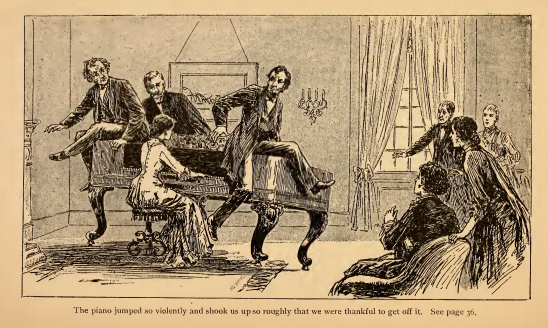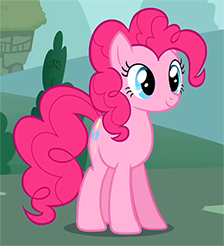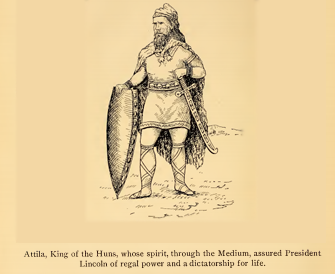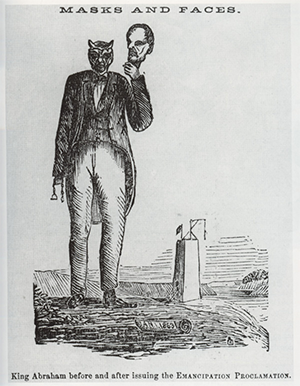It is quite uncontroversial among historians that Lincoln attempted to summon the dead. The only remaining question is to what degree he succeeded, and to what extent it influenced history.
The mid-1800s were the heyday of Spiritualism, a quasi-religious movement centered around seances summoning the spirits of the dead, who usually manifested through rapping noises or through taking control of the medium’s speech. At the time it was a big deal, drawing in even normally skeptical souls: Wikipedia mentions Alfred Russel Wallace, who co-discovered evolution with Darwin, as a confirmed believer.
And then there was Lincoln. CSICOP is the closest thing to an official voice of skepticism in the United States; their past membership includes such luminaries as Carl Sagan and James Randi. Of Lincoln’s spiritualism, they say:
His wife, Mary Todd Lincoln, attended séances, one even held in the White House’s Red Parlor. Lincoln stumbled upon the session, watching with curiosity. On another occasion, he accompanied Mary to a séance at a private home. The president, however, was a skeptic, and one biographer has suggested that his limited involvement in spiritualism was due to a desire “to protect his gullible wife”
What was this “seance in a private home” that even CSICOP agrees Lincoln attended? No other than the Laurie family mentioned in Fayette Hall’s book! In fact, we have a letter from Jack Laurie, dated 1885, stating that “I have very often seen Mr. Lincoln at my father’s house engaged in attending circles for spiritual phenomena, and generally Mrs. Lincoln was with him.”
So Lincoln very likely attended a seance at the Laurie house. What exactly happened during this event?
Here we begin to get into more controversial territory. For this I turn to the work of former Illinois state historian Jay Monaghan, particularly his 1941 article in Journal of the Illinois State Historical Society “Was Abraham Lincoln Really A Spiritualist?”
Monaghan has eleven sources that purport to describe Lincoln’s necromancy, but he only accepts three of these as conveying credible information about the Laurie seance. One of these is Nettie Colburn Maynard, a different medium who had been attending this seance as a guest rather than as the active participant. A second is Colonel S.P. Kase, who later went to the newspapers with his story. The third is our old friend Dr. Fayette Hall, author of The Copperhead, or, The Secret Political History of our Civil War Unveiled, Showing The Falsity Of New England. Partizan History, How Abraham Lincoln Came To Be President, The Secret Working And Conspiring Of Those In Power. Motive And Purpose Of Prolonging The War For Four Years. To Be Delivered And Published In A Series Of Four Illustrated Lectures.
Why was Hall considered a remotely credible source? Because he had, in fact, spent a lot of the 1860s interviewing mediums and other members of DC’s spiritualist community, and in fact had even talked with President Lincoln about the latter’s spiritual experiences (a talk Monaghan describes as “a personal interview which Dr. Hall did not enjoy”.)
These three sources broadly agree on what happened at the Lauries’ seance, but it is Ms. Maynard who gives the most detailed account and whom I will quote here. This passage is long, but worth it:
It was at this seance that Mrs. Belle Miller gave an example of her power as a “moving medium,” and highly amused and interested us by causing the piano to “waltz around the room,” as was facetiously remarked in several recent newspaper articles. The true statement is as follows: Mrs. Miller played upon the piano (a three-corner grand), and under her influence it “rose and fell,” keeping time to her touch in a perfectly regular manner. Mr. Laurie suggested that, as an added “test” of the invisible power that moved the piano, Mrs. Miller (his daughter) should place her hand on the instrument, standing at arm’s length from it, to show that she was in no wise connected with its movement other than as agent. Mr. Lincoln then placed his hand underneath the piano, at the end nearest Mrs. Miller, who placed her left hand upon his to demonstrate that neither strength nor pressure was used. In this position the piano rose and fell a number of times at her bidding. At Mr. Laurie’s desire the President changed his position to another side, meeting with the same result.
The President, with a quaint smile, said, “I think we can hold down that instrument.” Whereupon he climbed upon it, sitting with his legs dangling over the side, as also did Mr. Somes, S. P. Kase, and a soldier in the uniform of a major (who, if living, will recall the strange scene) from the Army of the Potomac. The piano, notwithstanding this enormous added weight, continued to rise and fall until the sitters were glad “to vacate the premises.” We were convinced that there were no mechanical contrivances to produce the strange result, and Mr. Lincoln expressed himself perfectly satisfied that the motion was caused by some “invisible power;” and when Mr. Somes remarked, “When I have related to my acquaintances, Mr. President, that which I have experienced to-night, they will say, with a knowing look and wise demeanor, ‘You were psychologized, and as a matter of fact (versus fancy) you did not see what you in reality did see.'” Mr. Lincoln quietly replied, “You should bring such person here, and when the piano seems to rise, have him slip his foot under the leg and be convinced (doubtless) by the weight of evidence resting upon his understanding.”
When the laughter caused by this rally had subsided, the President wearily sank into an arm-chair, “the old tired, anxious look returning to his face.” This never-to-be-forgotten incident occurred on the fifth day of February, 1863.
Just to make sure we’re all on the same page here, we have three witnesses all enjoying a personal familiarity with Lincoln, including a colonel of the United States Army, being quoted by the Illinois State Historian as claiming that the President of the United States was flung around a room by ghosts, while seated upon a flying piano. And that this same president then proceeded to make a pun about the situation.

“Pics or it didn’t happen” was a much less useful heuristic in the 19th century.
Lincoln’s lack of belief did not prevent him from enjoying the evening’s entertainment. Nettie was an accomplished actress, ably mimicking the booming baritone of Daniel Webster or the frail voice of the Indian maiden. She spoke for an hour, channeling one voice and then another as she related historical episodes from the landing of the Pilgrims to the current war. Her oration, which carried a passionate abolitionist message, seemed to S.P. Kase the “grandest” he had ever heard. When the spirits left her, she departed as abruptly as she had arrived. All was silent for a while, then the President turned in his seat, threw his right long leg over the arm of his chair, and exclaimed “Was not this wonderful?” He seemed to have viewed Nettie’s performance with the same pleasure he derived from the the theater.
Nettie herself tells the story somewhat differently:
Mr. and Mrs. Laurie and Mrs. Miller were duly presented. Then I was led forward and presented. He stood before me, tall and kindly, with a smile on his face. Dropping his hand upon my head, he said, in a humorous tone, “so this is our ‘little Nettie’ is it, that we have heard so much about?” I could only smile and say, “Yes, sir,’ like any school girl; when he kindly led me to an ottoman. Sitting down in a chair, the ottoman at his feet, he began asking me questions in a kindly way bout my mediumship; and I think he must have thought me stupid, as my answers were little beyond a “Yes” and “No”. His manner, however, was genial and kind, and it was then suggested we form a circle. He said, “Well, how do you do it?” looking at me. Mr. Laurie came to the rescue, and said we had been accustomed to sit in a circle and join hands; but he did not think it would be necessary in this instance. While he was yet speaking, I lost all consciousness of my surroundings and passed under control.
For more than an hour I was made to talk to him, and I learned from my friends afterward that it was upon matters that he seemed fully to understand, while they comprehended very little until that portion was reached that related to the forthcoming Emancipation Proclamation. He was charged with the utmost solemnity and force of manner not to abate the terms of its issue, and not to delay its enforcement as a law beyond the opening of the year; and he was assured that it was to be the crowning event of his administration and his life; and that while he was being counseled by strong parties to defer the enforcement of it, hoping to supplant it by other measures and to delay action, he must in no wise heed such counsel, but stand firm to his convictions and fearlessly perform the work and full the mission for which he had been raised up by an overruling Providence. Those present declared that they lost sight of the timed girl in the majesty of the utterance, the strength and force of the language, and the importance of that which was conveyed, and seemed to realize that some strong masculine spirit force was giving speech to almost divine commands.
I shall never forget the scene around me when I regained consciousness. I was standing in front of Mr. Lincoln, and he was sitting back in his chair, with his arms folded upon his breast, looking intently at me. I stepped back, naturally confused at the situation – not remembering at once where I was; and glancing around the group, where perfect silence reigned. It took me a moment to remember my whereabouts.
A gentleman present then said in a low tone, “Mr. President, did you notice anything peculiar in the method of address?” Mr. Lincoln raised himself, as if shaking off his spell. He glanced quickly at the full-length portrait of Daniel Webster, that hung above the piano, and replied, ‘Yes, and it is very singular, very!” with a marked emphasis.
S.P. Kase, as quoted in Fayette Hall, describes the scene somewhat differently:
When I entered the parlor, I found the President and Mrs. Lincoln there, together with a number of people whom I did not know. For a while the conversation was general, and nothing unusual happened. Suddenly a young girl [Nettie] walked the length of the drawing room to where President Lincoln sat. Stopping in front of him, the child, for she was nothing more, looked into his eyes with a peculiar rapt expression on her face.
‘President Lincoln,’ she said in a clear, loud voice. ‘The liberty of our nation conceived in the womb of oppression and born in the throes of revolution, can never be crowned with the wreath of immortality, until each and every human being in these United States is free. Slavery in any form must not exist. So says that spiritual Congress, which in this dread time of menace and danger to the Union, watches over and directs the affairs of the nation with even greater care and steadfastness of purpose than do the representatives chosen by the people. I have been chosen as their medium of communication with you. Before you can hope to bring about the great and lasting glory of this republic, you must make every man within its boundaries free. You must emancipate all the slaves by your pen, and your armies must indorse your action with the sword.’
Fayette Hall, who was actually at this same seance himself, concludes his description by saying:
On September 22, 1862 [Lincoln] signed the proclamation, making the slaves free men … As the spirit communicating did not send in his card or announce his name, and the question arose as to who it might be, some one present seeing the portrait of Daniel Webster suggested that it might be his spirit, and it was at once decided that it was…I think it more likely to have been the spirit of the Negro pirate, Wansley, who with the pirate Gibbs, was hanged on gibbet, now Bedloes Island, in New York Bay.”
This is as far as Doris Kearns Goodwin, CSICOP, Colonel Kase, and the rest of the sane historical establishment will allow us to go. It’s pretty far. It at least suggests that the idea of the Emancipation Proclamation was communicated to Lincoln by a ghost. Who may or may not have been a pirate. One of the most important documents in American history was inspired by an ambiguously-piratical ghost. According to a US Colonel.
But Nettie Colburn Maynard, the medium involved, wrote a tell-all autobiography after the war. Some parts of it, like the levitating piano, we can verify through other sources. But Nettie goes further and says that after this event, Lincoln secretly called her to the White House for a sort of 19th century version of Project Stargate, an attempt to see whether Nettie’s powers could be valuable weapons in the Civil War.
There’s no evidence of this beyond Nettie’s own claims. But these should not be dismissed. We know for certain that Mrs. Lincoln believed in Nettie’s powers. And we have good testimony that the President was confronted with the whole piano incident that he could not explain. We know Lincoln was superstitious: he explicitly claimed it (“I was always superstitious” – Lincoln in letter to Joshua Speed), and often spoke of his prophetic dreams. So if you’re superstitious, and you’ve just seen a medium demonstrate seemingly supernatural powers, and you’re fighting a war, why wouldn’t you try to take advantage of this?
Further, Nettie’s book starts with an introduction by the publisher, who says that before he published it he did as much research as possible, first into the character of Ms. Maynard [there follows a long list of respectable judges and writers and such who are quoted as saying they know Ms. Maynard and she is a very honest person who would never lie about this kind of thing] and into corroborating evidence. He then gives sworn affidavits by several Washington politicians and their families (as well as one famous author) who say they were at some of these same seances and everything described is true.
So, what does Nettie describe? First, that a skeptical Lincoln prepares a test for her. He hides one of his friends, General Dan Sickles, whom Nettie has never met, underneath a cloak. Then he asks Nettie to tell him who he is. Nettie channels the spirit of “the princess Pinkie”, who addresses the man as “General” and by the riddle “Crooked Knife”. It is decided that a crooked knife is sufficiently like a sickle to count this as a win, and Nettie gains the President’s trust.

Pictured: an all-knowing voice from beyond the veil of death
Around this point, Lincoln orders his friend Isaac Newton (not that Isaac Newton!) to get Nettie a cover as some kind of low-level government worker dealing with agriculture. He then consults her several times during the war, asking her what the spirits recommend he do. In the interest of length I will include only one of these stories, although Nettie’s book is full of them. This description is from Monaghan:
In making a decision of such magnitude [as launching an important military campaign], a man as cautious as Lincoln is known to have been might have consulted every angle of opinion before embarking on the enterprise. Congressman Somes, according to report, was asked to bring Nettie Colburn to the White House for a secret session. “Consider the matter confidential,” Lincoln warned the Congressman.
At the appointed time Mr. Somes and the medium were hurried upstairs to the executive chamber, where Mr. Lincoln and two gentlemen were waiting…Mr. Lincoln then gently stated he wished to give the medium an opportunity to display her rare gift. As the time for the seance approached all sat silently for a few moments and Nettie went under control. She recalled:
“One hour later I became conscious of my surroundings, and was standing by a long table, upon which was a large map of the Southern States. In my hand was a lead pencil…I glanced around to note Mrs. Lincoln quietly conversing in another part of the room. The only remarks I heard were these: “It is astonishing,” said Mr. Lincoln, “how every line she has drawn conforms to the plan agreed upon.” “Yes,” answered the older soldier, “it is very astonishing.” Looking up, they both saw that I was awake, and they instantly stepped back, while Mr. Lincoln took the pencil from my hand and placed a chair for me…
Shortly afterwards, when about leaving, Mr. Lincoln said to us in a low voice, “It is best not to mention this meeting at present.” Assuring him of silence upon the question, we were soon upon our way.”
So what about Attila the Hun?
I have searched far and wide for any evidence that Fayette Hall had a source for this. Hall, who was at some of these seances and obsessively interviewed attendees at others, seems to be infuriatingly able to combine meticulous research with total flights of fancy, and it appears that the Attila claim is one of the latter. As far as I can tell, it just seems to him that Abraham Lincoln’s actions were the sort of thing someone who had signed a demonic pact with Attila the Hun might do.
So in the end, what do we have? Pretty high-quality evidence, evidence good enough to satisfy all of Lincoln’s most famous biographers and historians not to mention frickin’ CSICOP, that Lincoln attended seances. Good evidence that these seances included a piano that was made to appear to levitate, and that Lincoln sat on top of it. Weak but still plausible evidence that Lincoln then, in secret, tried to summon spirits to help him win the Civil War. And, alas, no evidence at all that Attila the Hun was involved in any way.

Except this very suspicious-looking picture plus caption!
Still, I think this has been a good exercise in charity. We went from something so outrageous that no one could possibly believe it – Fayette Hall’s claim that Lincoln made a demonic pact with Attila the Hun – and through investigating it, discovered something extremely fascinating: that Lincoln attended seances and may even have tested spiritualism as a possible intelligence source during the war. Sure, the original claim may have been false. But looking into it was sure a heck of a lot more fun then “Ghosts don’t exist, you’re all idiots, shut up and go away.”

Still uninvestigated: was “Lincoln” really just the Devil wearing an Lincoln mask?

















I think Hall is being misled by his sources: probably the pact was with *Ghengis Khan*, not Attila the Hun. A man who choked to death on his wedding night after conquering a few countries is nowhere near as demonic or adept at conquest as the Oceanic Khan whose hordes conquered the greatest land empire in history.
> It at least suggests that the idea of the Emancipation Proclamation was communicated to Lincoln by a ghost.
Don’t the quotes speak of the Proclamation as ‘forthcoming’ and already the subject of lobbying/pressure?
Since the dead are known at times to vote, it is not altogether surprising that they also have a powerful lobby…
Still uninvestigated: was “Lincoln” really just the Devil wearing an Lincoln mask?
Of course not. If there was no Lincoln, then obviously there could be no such thing as a Lincoln mask!
Where did the piano event take place? Surely not at the white house? I’m not familiar with Houdini’s debunking campaign so it sounds like a pretty good trick to pull off, particularly if it takes place at the residence of the mark…
That was in the Lauries’ house, a private residence. I think I remember the medium involved was living there or a family friend or something. I’ve given up on trying to sort magic tricks into “seems possible” or “seems impossible”. The magicians are just way better than my ability to dismiss things as absurd will allow.